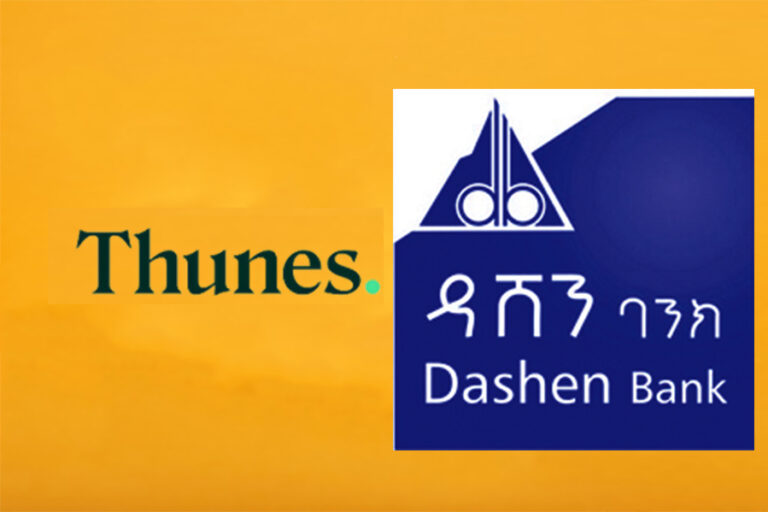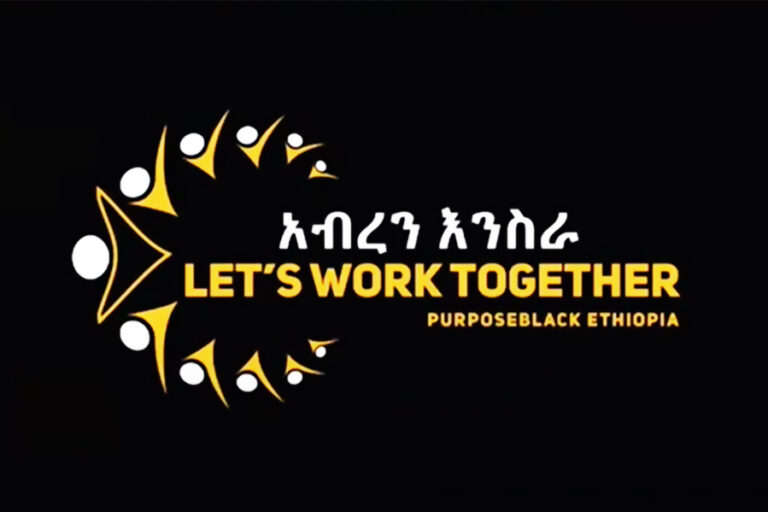Thunes, a global payment network, is partnering with Dashen Bank to open a quicker and cheaper option for sending money to Ethiopia from around the globe.
The cross-border payment solution opens the option for people around the world to send money directly into one’s bank account or Amole mobile wallet.
“This technology-powered solution gives Dashen Bank’s customers fast and convenient access to overseas funds,” said Dashen Bank CEO Asfaw Alemu. “It’s another positive step towards our goal of transforming Ethiopia’s financial services sector and delivering innovations to serve our customer’s needs better.”
Before this option, international money transfers were slow and unreliable, harming Ethiopian businesses and much of the nation which relies on payments from family overseas.
The program is expected to boost financial activity in Ethiopia from overseas and increase the circulation of foreign currency into the nation’s economy, as Thunes’ network of sending partners encompasses more than 100 countries.
“We are delighted to partner with Dashen Bank, one of Ethiopia’s leading banks,” said Andrew Stewart, Global Head of Networks at Thunes, adding, “Thunes continues to invest in and grow our network in the world’s fastest growing economies. Our global partners can now give their customers enhanced access to this important corridor in Africa with faster and more convenient transfers.”
Thunes link with Dashen to ease cross border payments
Purpose Black officially launches share sell
Purpose Black Ethiopia, which is a dynamic business established to offer an economic solution with an end-to-end product-to-consumer, officially started selling its shares following its launch ceremony which was held on Saturday July 24, 2021 with the attendance of different government officials, founders and guests.
Purpose Black was founded with a goal of helping black farmers to produce globally competitive products and get fair prices for their products, and has also aims of reducing youth unemployment, promoting diaspora investment, selling products at a fair price and stabilizing the consumer market by promotion of export and increase of foreign currency earnings. Furthermore, it is keen on facilitating agricultural technology transfer.
“As the name indicates, the goal of Purpose Black is to offer economic solutions to some of the major problems of the black people all over the world, and through digital economy it will create a fruitful and thriving economy and thus the first model for the implementation of the global initiative of purpose black is purpose black Ethiopia,” said Fisseha Eshetu /MD/ founder of the platform.
As he explains, the first target is to mobilize capital and to this end, the platform is planning to raise about ten billion birr in capital through three ways; selling share locally, mobilizing the diaspora, and through propose black Africa which is targets to collect ten billion dollar to distribute all over the continent of which Ethiopia will benefit through the same.
As stated the company will sell shares through the 17 banks, financial institutions and telebirr which is also is one of the options alongside CBE birr and other digital wallets. Those who are abroad can get the share through a credit card from Abyssinia bank and commercial bank of Ethiopia. Similarly, depositing in swift accounts or money transfer platforms using the commercial bank are ways of purchasing the shares. For those who do not have bank access, they can get the share in Ethiopian embassies.
The company has prepared 10 billion shares which each is worth 100 birr and the minimum share one can buy is 10 shares worth 1000 birr. Also they are required to pay only 25 percent of the payment which is 250 birr and the rest can be paid in 2 years’ time interval. This of course is made in a way that makes the system accessible for all.
“Since it is working on an end-to-end service starting from the farmer system it is not fully dependent on technology or e-commerce. The technology in the middle is a system to make it successful,” explained Fisseha, adding, “We are trying to bring both the retail and hybrid ecommerce, so the distribution will be through the ecommerce and retail channels. To realize this, we will build five hyper markets in Addis Ababa, ten supermarkets and 1000 retail stores which will be all over the country. For those who can get access to the internet, they can use the ecommerce, whereas the others can use the retail channels, and thus it’s dynamic in this regard.”
Gates and Soros partner to launch Global Access Health
The Bill and Melinda Gates Foundation, in partnership with the Soros Economic Development Fund (SEDF), announced the launch of Global Access Health (GAH), a social enterprise seeking to expand access to affordable, state-of-the-art medical technology in the Global South.
“The COVID-19 pandemic has painfully demonstrated the fundamental inequities in global public health, and in particular the crucial importance of access in low- and middle-income countries to low-price, high-quality life-saving diagnostic tools,” said Sean Hinton, SEDF CEO.
In a USD$41 million dollar deal, GAH has also bought Mologic Ltd, a developer of lateral flow and rapid diagnostic technologies, including testing for tropical diseases such as dengue, bilharzia, and river blindness, and tests for COVID-19. The company, previously for-profit, will now reinvest its profits into pursuing the goals of a social enterprise.
“Mologic’s transition into a social enterprise is a deliberate, logical and natural step for a company focused on delivering affordable diagnostics and biotechnology to places that have been left underserved by the relentless pursuit of profiteering,” said Mologic CEO Mark Davis. “We believe we have the people and skills required for the challenges and opportunities ahead.”
Sister non-profit Global Access Diagnostics (GAD) will also be wholly owned by GAH. GAD focuses on low-cost manufacturing of diagnostic tests, and licenses Mologic products in Africa and South Asia.
SEDF includes GAH as part of a portfolio of recent investments made by parent organization Open Society Foundations, the largest private funders of human rights and social justice advocacy groups. Open Society Foundations holds 35 investments currently, totaling USD$300m.
Mark Davis will continue to serve as CEO of Mologic and Paul Davis will continue as Chief Scientific Officer. GAD will continue as a separate entity under CEO Mark Radford.
Shaping a flourishing Ethiopian household
Yonsei Global Health Center (YGHC), with funding and support from the Korea International Cooperation Agency (KOICA), will run a project called the Small, Happy and Prosperous Family in Ethiopia (SHaPE) project until December 2023.
The SHaPE project, also called the National Campaign for Promoting Knowledge, Attitude, and Behavioral Changes in Population and Reproductive Health in Ethiopia, aims to improve awareness of sexual reproductive health and gender equality in Ethiopia and contribute to decreasing the fertility and maternal mortality rate.
The project has funding of USD 1.7 million, and will run in Addis, Amhara, Dire Dawa, Oromia, Sidama, Somali, Tigray and Southern Nations, Nationalities, and Peoples’ Region (SNNPR).
According to Worldometers, the Ethiopian population has already surpassed 117 million people. More than 34.6 million people, or 29.6% of the population, are living below the poverty line and earning less than USD 1.25 per day.
Ethiopia also has some of the lowest gender equality performance indicators in sub-Saharan Africa. Women and girls are disadvantaged in literacy, health, livelihoods, and basic human rights, among other areas. They suffer low status in society and lack social support networks.
Women’s health is also poor, affected by poverty, poor nutrition, and restricted access to health care services due to financial constraints and cultural beliefs, according to the 2011 and 2016 Ethiopian Demographic and Health Survey (EDHS). That same survey found that more than 95% of respondents did not know where to go for contraceptive services and/or they had poor knowledge of or exposure to modern contraceptive methods.
Maternity can also be dangerous for both mother and child in Ethiopia, which was exacerbated by the pandemic. COVID-19 reduced the amount of clients presenting for family planning by 27%. Skilled deliveries decreased by 27.6% and postpartum family planning by 66.7%.






